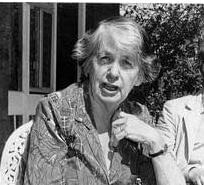Amy’s Children: Text Classics
Text Classics
Olga Masters
Introduction by Eva Hornung
The getting away was terrible.
Kathleen was very white and Patricia buried herself in the corner of the couch and cried quietly like a grown-up. Lebby had a fever and May had put her into the double bed under the speckled eiderdown. It was ironic that May should spare Lebby from witnessing the departure, since she was the one least troubled by it.
When Amy came into the kitchen with her luggage, Patricia made for the corner of the couch and Kathleen ran to Gus and clung to his leg. He lifted her up, with a brief look of hate towards Amy, across Kathleen’s tangled head…
Abandoned by her feckless husband during the Depression, Amy decides to leave her country town—and her three infant children—and try her luck in the big smoke.
Life in wartime Sydney is far from easy, but for Amy there are the hard-won satisfactions of an office job and a house of her own. Until her eldest, Kathleen, appears needing a home while she attends high school. And Amy falls in love with a married man…
Enlivened with note-perfect observations of the everyday, wrenching in its portrayal of a young woman struggling to succeed yet often wilfully ignorant of her own children, Olga Masters’ second and last novel is a triumph. At its centre is Amy, one of the great characters in Australian literature.
This edition comes with an introduction by the novelist Eva Hornung.
‘A wonderful, warm, life-affirming book.’ Swiftly Tilting Planet
andAmy’s Children
‘A beautiful little book, written with great gentleness and warmth.’
‘Olga Masters writes with freshness and brimming exuberance, and yet control over her material is absolute…Amy’s Children is a polished, moving story, one that touches the very roots of being and feeling without the barest hint of cliche.’
‘Amy’s Children offers a delightfully wicked view of female values and culture.’
‘In Amy’s Children Masters has changed her background from rural to urban without changing her essential territory—the intense and private lives of women and girls.'
‘Masters’ best work…[It] captures in photorealist detail the peeling facades of the inner city during the years when the Depression was supplanted by war…What makes this quiet novel so remarkable? Partly it is the language, as regular and minutely exact as Amy’s aunt’s hand-sewn buttonholes. But the real magic lies in the way such words are deployed…The sense of loss that pervades this final work is palpable.‘
‘Polished, subtle and sustained. A classic Australian novel.’
‘The women whose small lives are chronicles here might be described as protofeminists…each is absorbed in making her own way in the world. Masters’ orchestration of this theme is superb.‘






